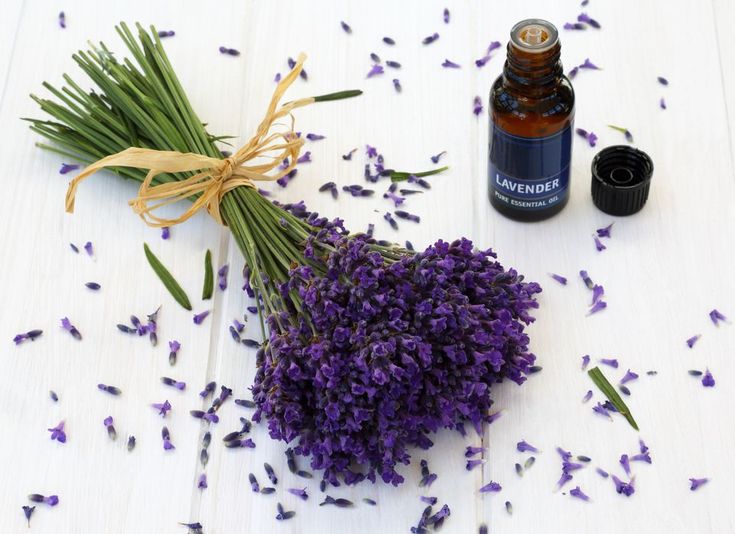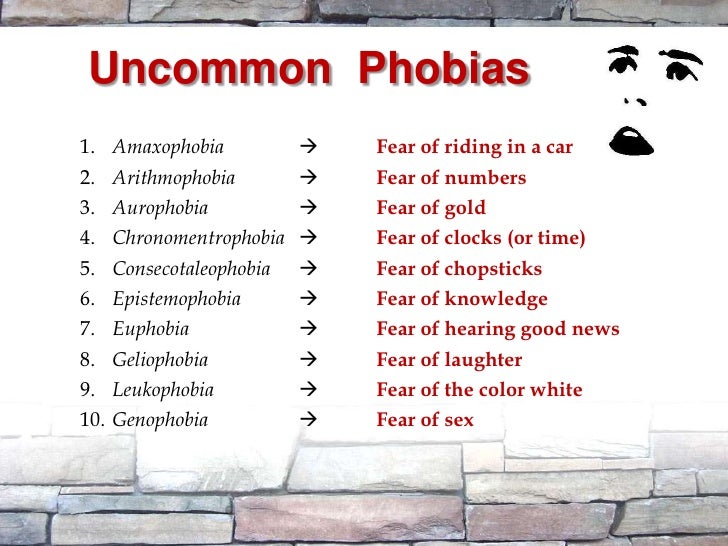Lavender oil for anxiety
The Best Way to Use This Calming Herb
Lavender has long been known for its floral aroma and attractive purple color.
Used at least since the medieval period, the plant and its many variations have commonly been used in perfumes, soaps, and recipes around the globe.
As well as looking and smelling lovely, lavender has a long history of being used in medicine. More recently, the plant is increasingly used to manage symptoms of anxiety.
Lavender is renowned for its ability to create a relaxing atmosphere.
In fact, one of the main benefits of lavender is that it can calm without sedating.
More than simply generating a serene state of mind, lavender can reduce anxiety by affecting the body’s fight-or-flight response.
Lavender essential oil has been found to be effective in reducing:
- anxiety
- restlessness
- agitation
- disturbed sleep
- nervousness
- depressive symptoms
An older 2005 study showed that the aroma of lavender and orange reduced anxiety in dental patients.
Another study showed that aromatherapy administered during labor can reduce anxiety in women. The study also found that inhaling three drops of lavender every 8 hours for 4 weeks prevented stress, anxiety, and depression after childbirth.
Lavender used in aromatherapy massage has been shown to improve the physical and mental state of young mothers, facilitating mother-infant interaction.
While research suggests there are health benefits, the Food and Drug Administration (FDA) doesn’t monitor or regulate the purity or quality of essential oils.
It’s important to talk with your healthcare professional before using essential oils. Be sure to research the quality of a brand’s products.
Some people may have allergic reactions to essential oils. Always do a patch test before trying a new essential oil and follow dosage and dilution guidelines.
Lavender may have several beneficial effects that help ease anxiety, including:
- improved mood
- lower heart rate
- lower adrenaline levels
- regulated breathing
- improved sleep quality
Nervous system
Lavender has been shown to affect the parasympathetic nervous system.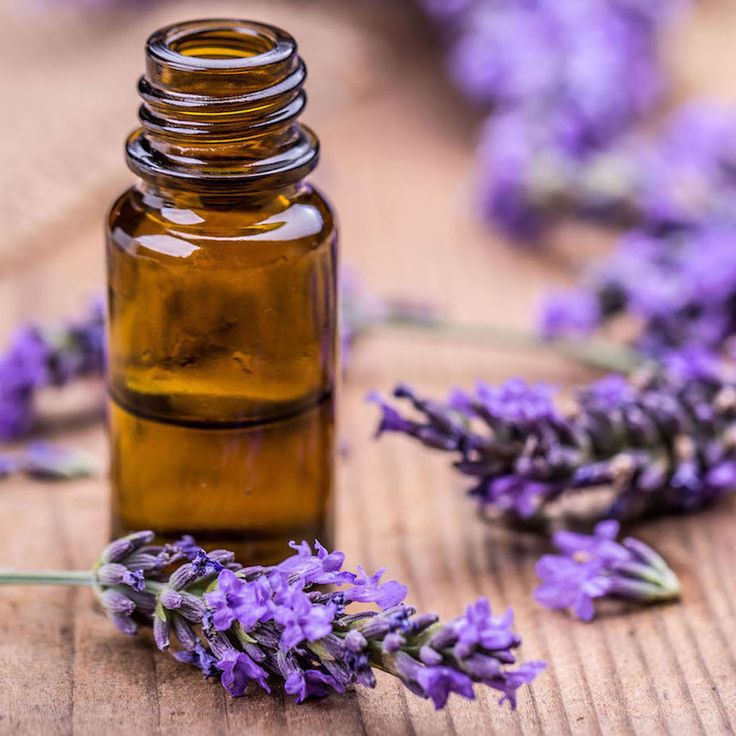 The parasympathetic nervous system controls bodily processes associated with anxiety, such as heart rate, breathing rhythm, and hormone secretion.
The parasympathetic nervous system controls bodily processes associated with anxiety, such as heart rate, breathing rhythm, and hormone secretion.
Lavender can help in regulating these bodily processes by restoring a neutral state. This involves lowering the heart rate, adrenaline levels, and slowing the breath.
Mental health
Research suggests that lavender may be of benefit as a complementary treatment for mild to moderate depression.
An older 2006 study found lavender aromatherapy to have a beneficial effect on insomnia and depression in female college students.
A further study found lavender aroma inhalation to improve sleep quality, depression, and stress levels in older adults.
Another study indicated that lavender has an anti-anxiety and anti-depressive effect. Oral lavender taken for 6 weeks was shown to improve the general mental health and quality of life in 50 patients with post-traumatic stress disorder.
Sleep
Lavender has long been considered a natural sleep remedy to improve sleep quality and treat insomnia.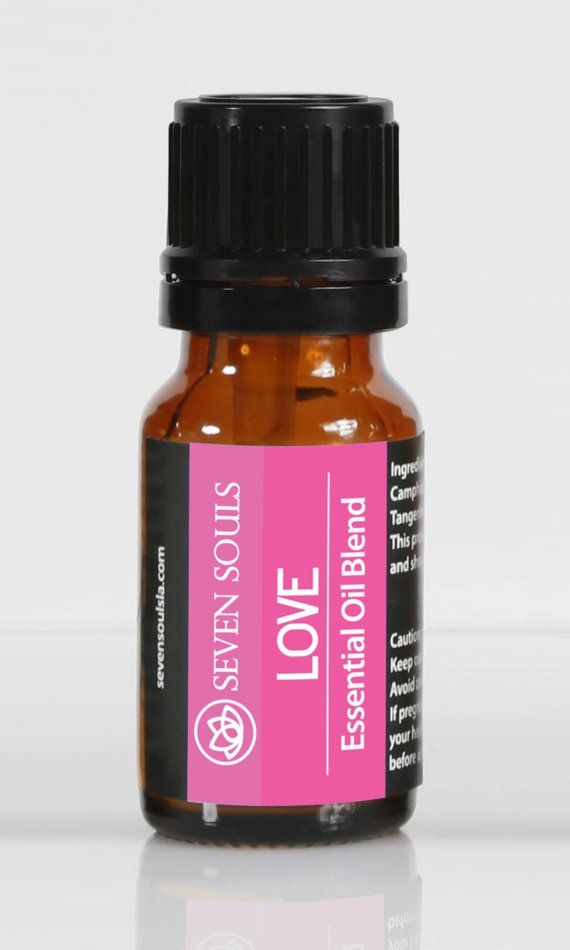
Research from 2010 has shown that orally administrated lavender can assist with symptoms of restlessness and disturbed sleep. This can help with anxiety, as well as improve general well-being and quality of life.
A further study on midlife women with insomnia found that 20 minutes of lavender inhalation through aromatherapy can significantly improve sleep quality.
The majority of research on lavender for anxiety symptoms includes oral administration and aromatherapy, suggesting these as the most effective methods to reduce symptoms.
Clinical trials suggest the best use of lavender for effective treatment of anxiety symptoms is through oral supplements containing lavender essential oil.
Although 100 and 200 milliliters (mL) of lavender oil in capsules has demonstrated to be effective, clinical studies show the most effective dose of lavender oil is suggested to be 80 milligrams (mg) per day. The study emphasizes that the lavender oil must be of high quality and not diluted with additives or synthetic substances.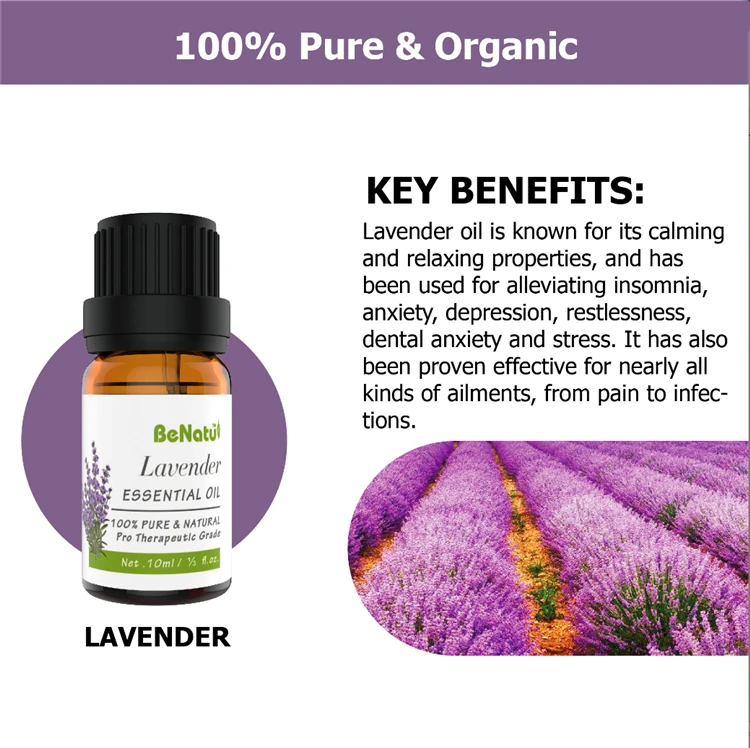
However, anywhere between 20 and 80 mg is still effective, and there are no reports of adverse side effects at this dosage.
For aromatherapy, research indicates that inhalation through olfaction (sense of smell) should be at a minimum of 3 minutes to be effective.
Research from 2001 indicates that 10 minutes of inhalation has effects on bodily functions associated with anxiety, such as blood pressure and heart rate.
If you’re using a diffuser, make sure it’s on for a minimum of 10 minutes to see benefits.
Bottom lineOral supplements and aromatherapy are the most effective ways to use lavender for anxiety.
Most commonly, lavender is used as lavender essential oil. Lavender is a versatile essential oil that can be used in a variety of ways.
When finding an oil, it’s important to make sure the label specifies “lavender essential oil” and not just “lavender oil.” Having “essential oil” on the label ensures it’s not just infused with lavender but a pure, concentrated oil from the plant.
Be sure to check all the ingredients on the label to make sure it’s not diluted with synthetic ingredients or fillers. Confirm the quality of the brand you choose with your doctor.
Bath
Essential oils can be a great addition to a bath, helping to calm, soothe, and relax while in a lavish setting.
Add a few drops of essential lavender to a bath and soak away to enjoy its benefits. You can either keep it simply lavender scented or use a combination of oils, such as lemon or orange.
Plus, the hot water can also help relax tired or sore muscles.
Diffuser
Aromatherapy diffusers disperse essential oils into the air. Any essential oils can be used in diffusers, including lavender or a mixture with other oils, such as orange or chamomile.
By diffusing the oils into the air, they’re inhaled by simple breathing, and research has shown that inhalation of lavender can significantly reduce anxiety levels.
Not only do the aromas in the air help deodorize the room, but they also can promote better sleep and ease symptoms of anxiety, particularly helping to relax and calm.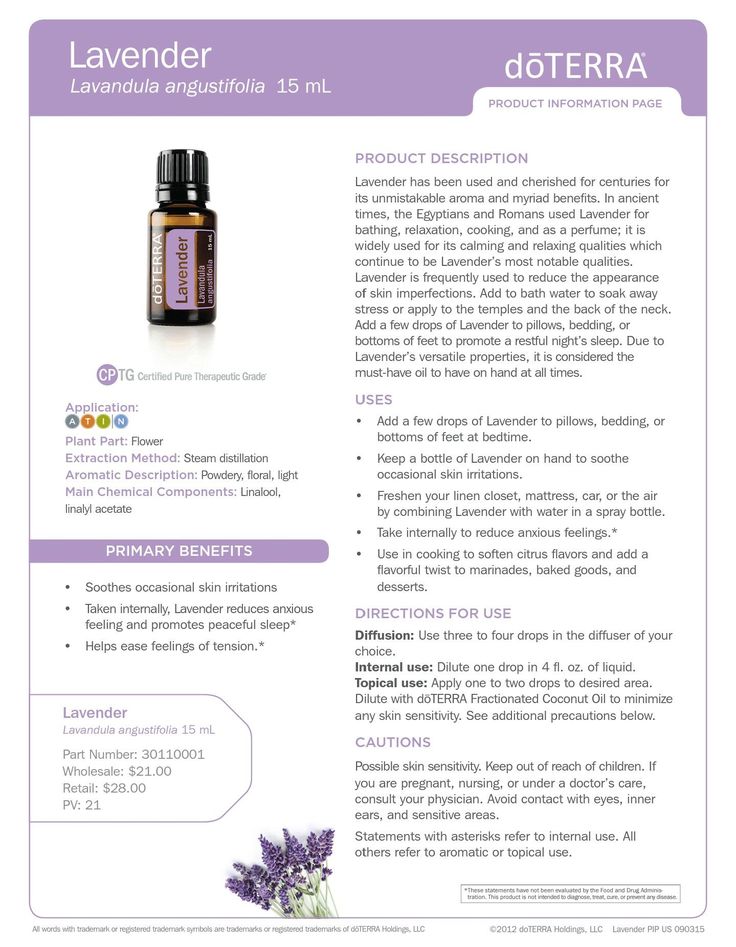
If you’re someone who experiences anxiety symptoms during scary or horror films, try diffusing some lavender while watching. A 2009 study found that lavender can reduce responses to anxiety-provoking film clips.
On body
When topically applied through massage, lavender oil is found to rapidly be absorbed by the skin, resulting in a sedative and relaxing effect.
You can either pat on oil from the bottle or use a rollerball. Apply to wrists, behind ears, and nape of neck throughout the day or as desired.
Oral
Research has shown that oral administration of lavender essential oil is an effective treatment for anxiety symptoms. In this study, 80 grams of Silexan (lavender oil in capsules) were taken for a minimum of 6 weeks.
Oral administration in this regard usually involves one-a-day capsules of lavender oil, such as Seremind.
Capsules
Capsules are a common method of consuming lavender, with studies showing they are effective in reducing symptoms of anxiety.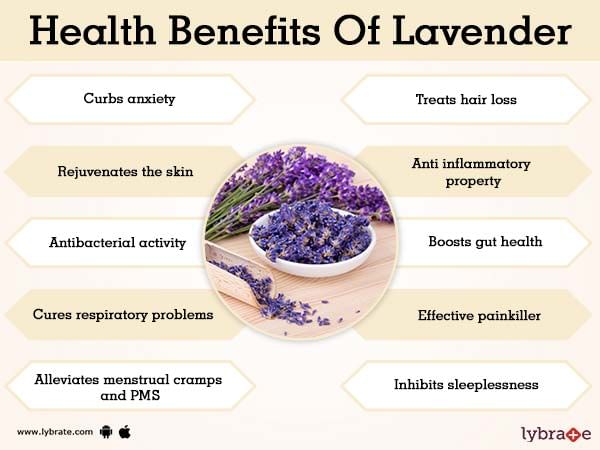
It’s important to make sure to read dosage and warnings on the bottle before use.
Tinctures
Tinctures are highly concentrated plant or herbal extracts.
Lavender tincture is a concentrated liquid extract made from distilling lavender flowers and buds in alcohol.
Consume by using the dropper to place a few drops under the tongue and swallow.
Lavender essential oil is generally recognized as safe by the FDA, but it must be used according to intended purposes and following dose guidelines on products.
Excessive intake of lavender oil has been reported to cause nausea and drowsiness, making it vital to follow guidelines that come with capsules and not exceed one-a-day dosage.
Research from 2010 has suggested that lavender oil is safe to use for the relief of anxiety. However, one report acknowledges that long-term studies demonstrating safety are lacking, while another suggests the evidence is lacking on lavender essential oil for specific types of anxiety, such as panic and phobic disorders.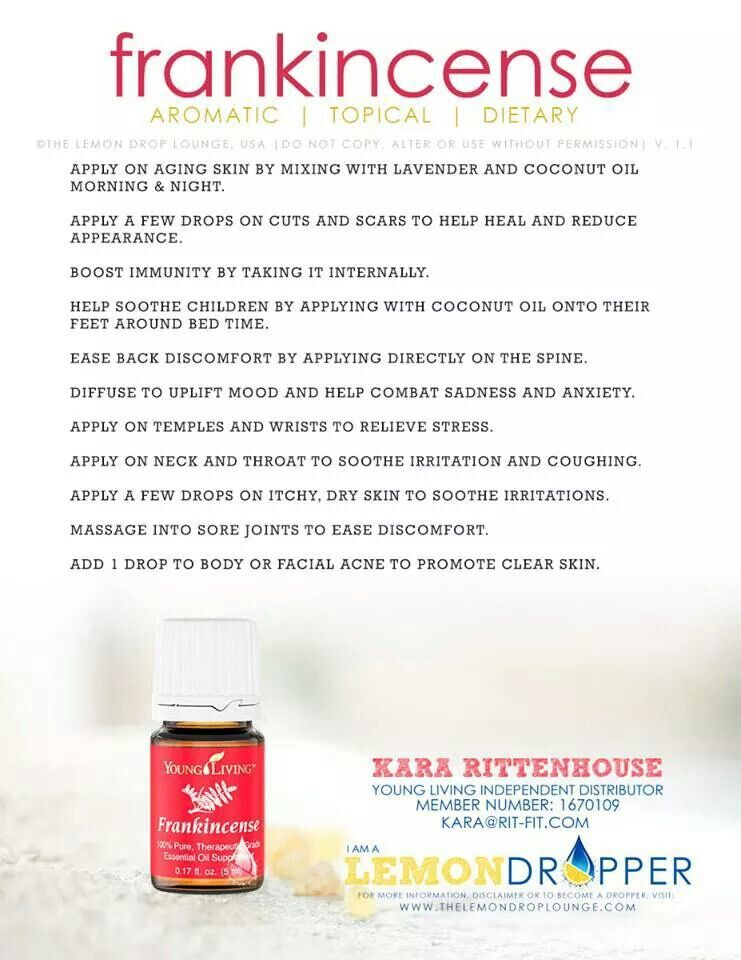
It’s important to receive a doctor or healthcare professional’s advice when considering treatments for mental health conditions. Speak to your doctor if you have any concerns.
In addition to its sweet, floral smell, lavender has therapeutic and medical benefits. These include reducing symptoms of anxiety.
Various research indicates that lavender can help reduce anxiety levels and can be used in a variety of ways, including massage, aromatherapy, baths, décor, or in recipes.
Talk to your doctor or a healthcare professional before using lavender for anxiety symptoms.
Marnie Vinall is a freelance writer living in Melbourne, Australia. She’s written extensively for a range of publications, covering everything from politics and mental health to nostalgic sandwiches and the state of her own vagina. You can reach Marnie via Twitter, Instagram, or her website.
The Best Way to Use This Calming Herb
Lavender has long been known for its floral aroma and attractive purple color.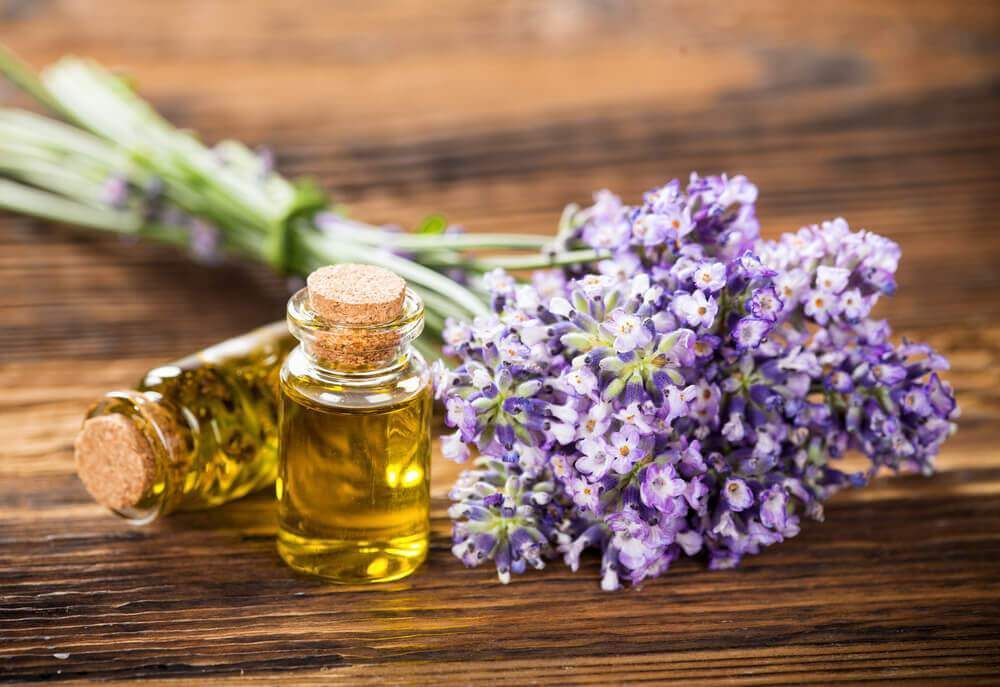
Used at least since the medieval period, the plant and its many variations have commonly been used in perfumes, soaps, and recipes around the globe.
As well as looking and smelling lovely, lavender has a long history of being used in medicine. More recently, the plant is increasingly used to manage symptoms of anxiety.
Lavender is renowned for its ability to create a relaxing atmosphere.
In fact, one of the main benefits of lavender is that it can calm without sedating.
More than simply generating a serene state of mind, lavender can reduce anxiety by affecting the body’s fight-or-flight response.
Lavender essential oil has been found to be effective in reducing:
- anxiety
- restlessness
- agitation
- disturbed sleep
- nervousness
- depressive symptoms
An older 2005 study showed that the aroma of lavender and orange reduced anxiety in dental patients.
Another study showed that aromatherapy administered during labor can reduce anxiety in women. The study also found that inhaling three drops of lavender every 8 hours for 4 weeks prevented stress, anxiety, and depression after childbirth.
The study also found that inhaling three drops of lavender every 8 hours for 4 weeks prevented stress, anxiety, and depression after childbirth.
Lavender used in aromatherapy massage has been shown to improve the physical and mental state of young mothers, facilitating mother-infant interaction.
While research suggests there are health benefits, the Food and Drug Administration (FDA) doesn’t monitor or regulate the purity or quality of essential oils.
It’s important to talk with your healthcare professional before using essential oils. Be sure to research the quality of a brand’s products.
Some people may have allergic reactions to essential oils. Always do a patch test before trying a new essential oil and follow dosage and dilution guidelines.
Lavender may have several beneficial effects that help ease anxiety, including:
- improved mood
- lower heart rate
- lower adrenaline levels
- regulated breathing
- improved sleep quality
Nervous system
Lavender has been shown to affect the parasympathetic nervous system.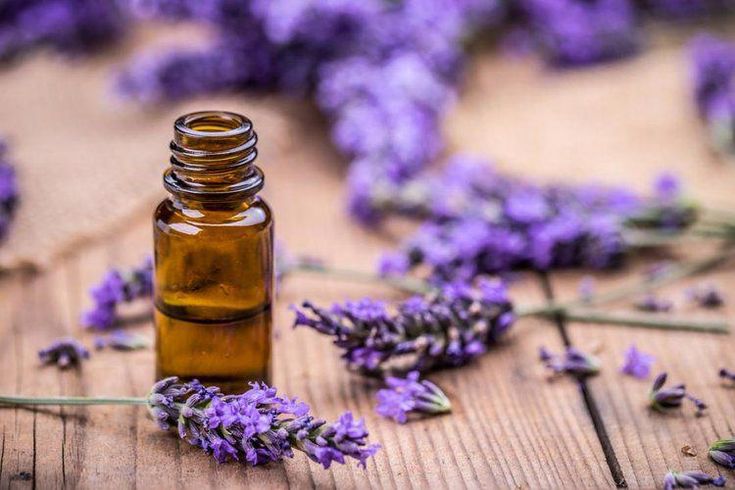 The parasympathetic nervous system controls bodily processes associated with anxiety, such as heart rate, breathing rhythm, and hormone secretion.
The parasympathetic nervous system controls bodily processes associated with anxiety, such as heart rate, breathing rhythm, and hormone secretion.
Lavender can help in regulating these bodily processes by restoring a neutral state. This involves lowering the heart rate, adrenaline levels, and slowing the breath.
Mental health
Research suggests that lavender may be of benefit as a complementary treatment for mild to moderate depression.
An older 2006 study found lavender aromatherapy to have a beneficial effect on insomnia and depression in female college students.
A further study found lavender aroma inhalation to improve sleep quality, depression, and stress levels in older adults.
Another study indicated that lavender has an anti-anxiety and anti-depressive effect. Oral lavender taken for 6 weeks was shown to improve the general mental health and quality of life in 50 patients with post-traumatic stress disorder.
Sleep
Lavender has long been considered a natural sleep remedy to improve sleep quality and treat insomnia.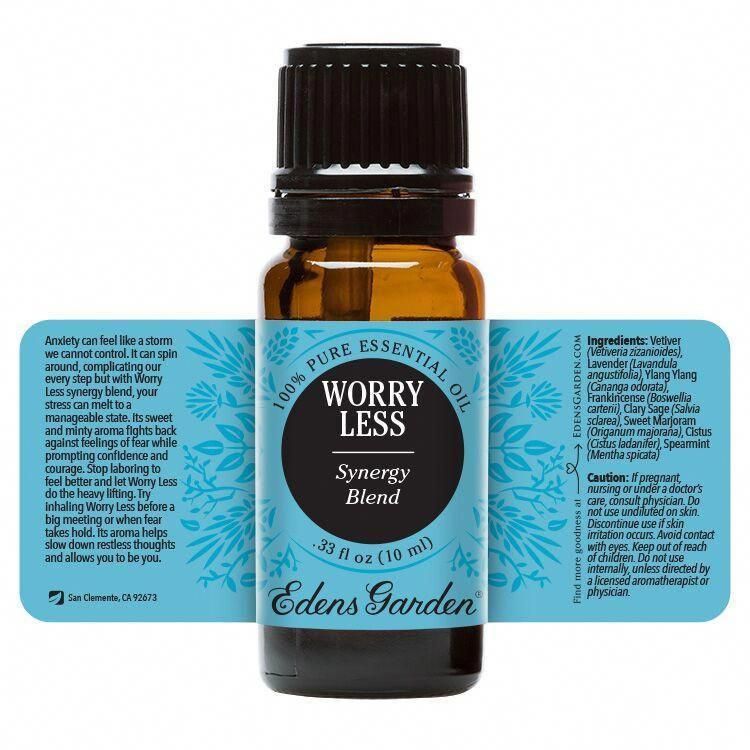
Research from 2010 has shown that orally administrated lavender can assist with symptoms of restlessness and disturbed sleep. This can help with anxiety, as well as improve general well-being and quality of life.
A further study on midlife women with insomnia found that 20 minutes of lavender inhalation through aromatherapy can significantly improve sleep quality.
The majority of research on lavender for anxiety symptoms includes oral administration and aromatherapy, suggesting these as the most effective methods to reduce symptoms.
Clinical trials suggest the best use of lavender for effective treatment of anxiety symptoms is through oral supplements containing lavender essential oil.
Although 100 and 200 milliliters (mL) of lavender oil in capsules has demonstrated to be effective, clinical studies show the most effective dose of lavender oil is suggested to be 80 milligrams (mg) per day. The study emphasizes that the lavender oil must be of high quality and not diluted with additives or synthetic substances.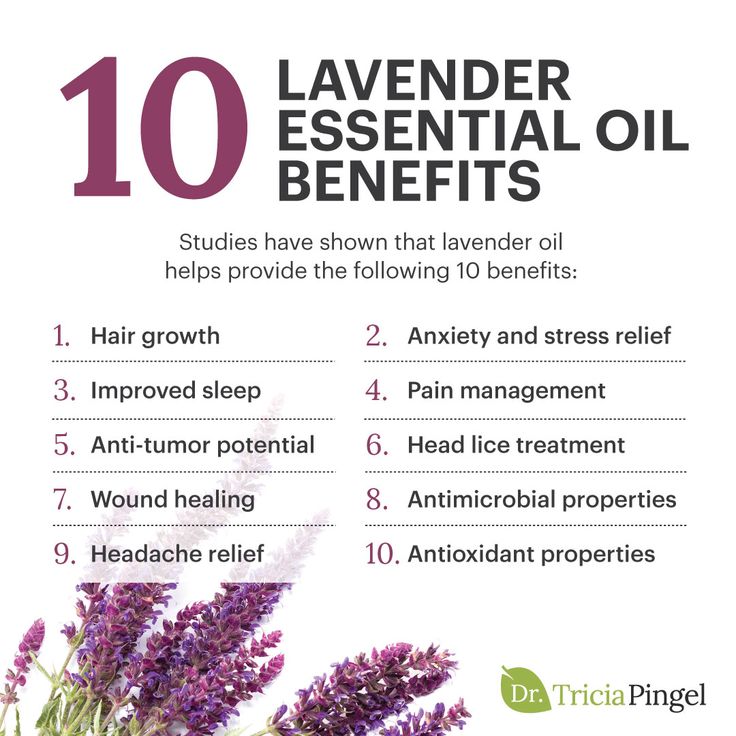
However, anywhere between 20 and 80 mg is still effective, and there are no reports of adverse side effects at this dosage.
For aromatherapy, research indicates that inhalation through olfaction (sense of smell) should be at a minimum of 3 minutes to be effective.
Research from 2001 indicates that 10 minutes of inhalation has effects on bodily functions associated with anxiety, such as blood pressure and heart rate.
If you’re using a diffuser, make sure it’s on for a minimum of 10 minutes to see benefits.
Bottom lineOral supplements and aromatherapy are the most effective ways to use lavender for anxiety.
Most commonly, lavender is used as lavender essential oil. Lavender is a versatile essential oil that can be used in a variety of ways.
When finding an oil, it’s important to make sure the label specifies “lavender essential oil” and not just “lavender oil.” Having “essential oil” on the label ensures it’s not just infused with lavender but a pure, concentrated oil from the plant.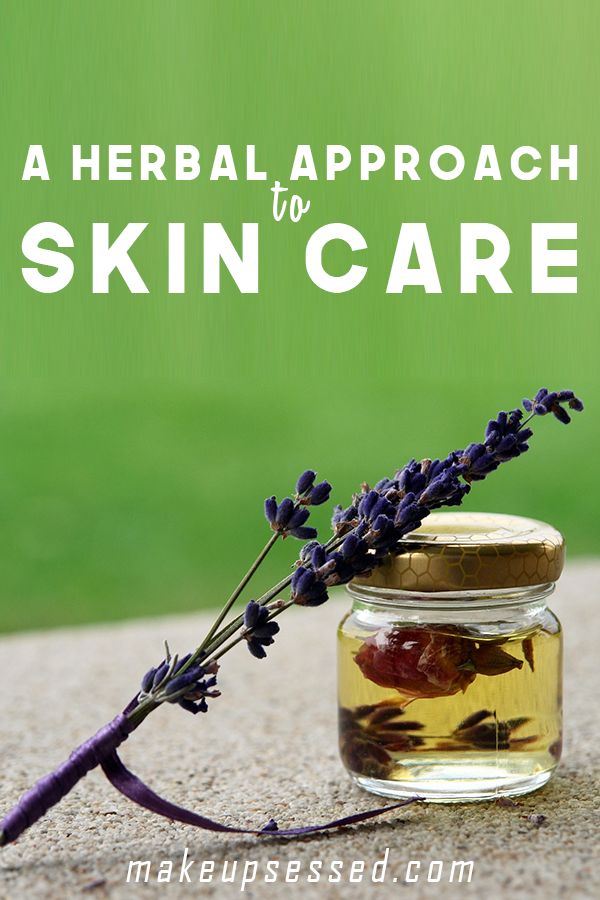
Be sure to check all the ingredients on the label to make sure it’s not diluted with synthetic ingredients or fillers. Confirm the quality of the brand you choose with your doctor.
Bath
Essential oils can be a great addition to a bath, helping to calm, soothe, and relax while in a lavish setting.
Add a few drops of essential lavender to a bath and soak away to enjoy its benefits. You can either keep it simply lavender scented or use a combination of oils, such as lemon or orange.
Plus, the hot water can also help relax tired or sore muscles.
Diffuser
Aromatherapy diffusers disperse essential oils into the air. Any essential oils can be used in diffusers, including lavender or a mixture with other oils, such as orange or chamomile.
By diffusing the oils into the air, they’re inhaled by simple breathing, and research has shown that inhalation of lavender can significantly reduce anxiety levels.
Not only do the aromas in the air help deodorize the room, but they also can promote better sleep and ease symptoms of anxiety, particularly helping to relax and calm.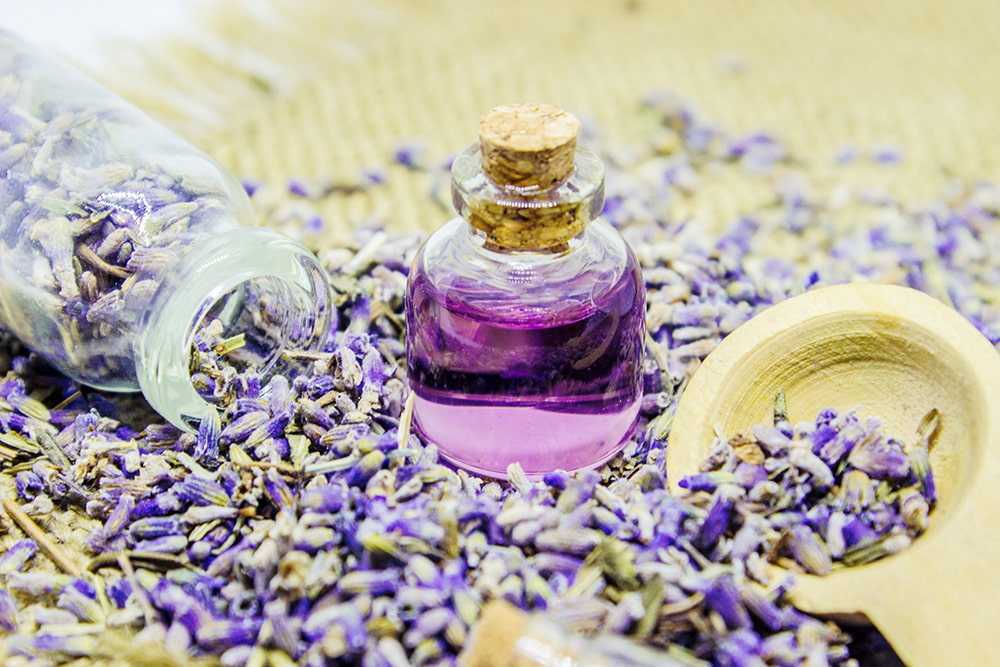
If you’re someone who experiences anxiety symptoms during scary or horror films, try diffusing some lavender while watching. A 2009 study found that lavender can reduce responses to anxiety-provoking film clips.
On body
When topically applied through massage, lavender oil is found to rapidly be absorbed by the skin, resulting in a sedative and relaxing effect.
You can either pat on oil from the bottle or use a rollerball. Apply to wrists, behind ears, and nape of neck throughout the day or as desired.
Oral
Research has shown that oral administration of lavender essential oil is an effective treatment for anxiety symptoms. In this study, 80 grams of Silexan (lavender oil in capsules) were taken for a minimum of 6 weeks.
Oral administration in this regard usually involves one-a-day capsules of lavender oil, such as Seremind.
Capsules
Capsules are a common method of consuming lavender, with studies showing they are effective in reducing symptoms of anxiety.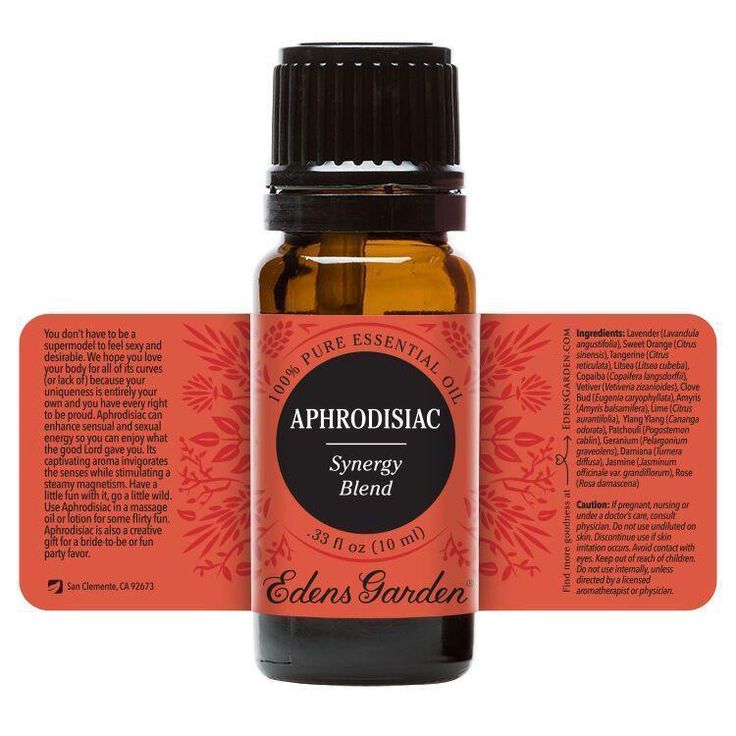
It’s important to make sure to read dosage and warnings on the bottle before use.
Tinctures
Tinctures are highly concentrated plant or herbal extracts.
Lavender tincture is a concentrated liquid extract made from distilling lavender flowers and buds in alcohol.
Consume by using the dropper to place a few drops under the tongue and swallow.
Lavender essential oil is generally recognized as safe by the FDA, but it must be used according to intended purposes and following dose guidelines on products.
Excessive intake of lavender oil has been reported to cause nausea and drowsiness, making it vital to follow guidelines that come with capsules and not exceed one-a-day dosage.
Research from 2010 has suggested that lavender oil is safe to use for the relief of anxiety. However, one report acknowledges that long-term studies demonstrating safety are lacking, while another suggests the evidence is lacking on lavender essential oil for specific types of anxiety, such as panic and phobic disorders.
It’s important to receive a doctor or healthcare professional’s advice when considering treatments for mental health conditions. Speak to your doctor if you have any concerns.
In addition to its sweet, floral smell, lavender has therapeutic and medical benefits. These include reducing symptoms of anxiety.
Various research indicates that lavender can help reduce anxiety levels and can be used in a variety of ways, including massage, aromatherapy, baths, décor, or in recipes.
Talk to your doctor or a healthcare professional before using lavender for anxiety symptoms.
Marnie Vinall is a freelance writer living in Melbourne, Australia. She’s written extensively for a range of publications, covering everything from politics and mental health to nostalgic sandwiches and the state of her own vagina. You can reach Marnie via Twitter, Instagram, or her website.
Research's Top 6 Essential Oils for Anxiety
The essential oils from these plants are a proven natural remedy for dealing with anxiety, fears, insomnia and stress.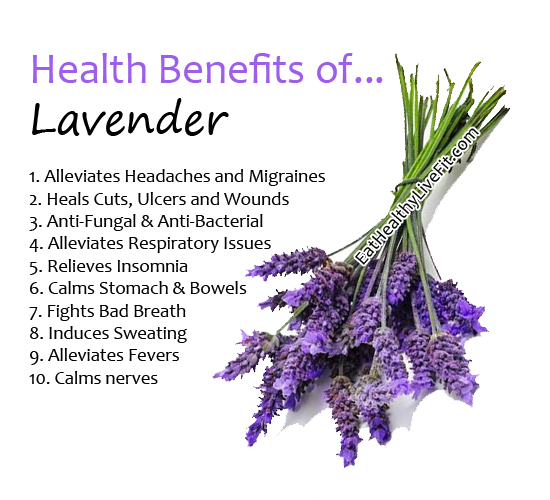
Lavender oil
Lavender essential oil is considered one of the most effective remedies against anxiety and stress. Lavender has a beneficial effect on the nervous system: it has a calming, relaxing effect. It has been proven that the aromatic oil of this plant helps with insomnia, panic attacks, and various psychosomatic disorders. “In one study, participants were given lavender essential oil capsules before watching an anxiety-inducing movie,” says Josh Ax, MD, Functional Medicine, Nutritionist. - And the heart rate after taking them was significantly reduced compared to placebo. This suggests that lavender aromatic oil has an anxiolytic effect, which manifests itself in reducing anxiety, fear, and reducing emotional stress. There are also a number of studies demonstrating the ability of lavender ether to reduce anxiety in patients before coronary artery bypass surgery and dental visits.
Damask Rose Oil
The second most popular anti-anxiety and depression remedy after lavender.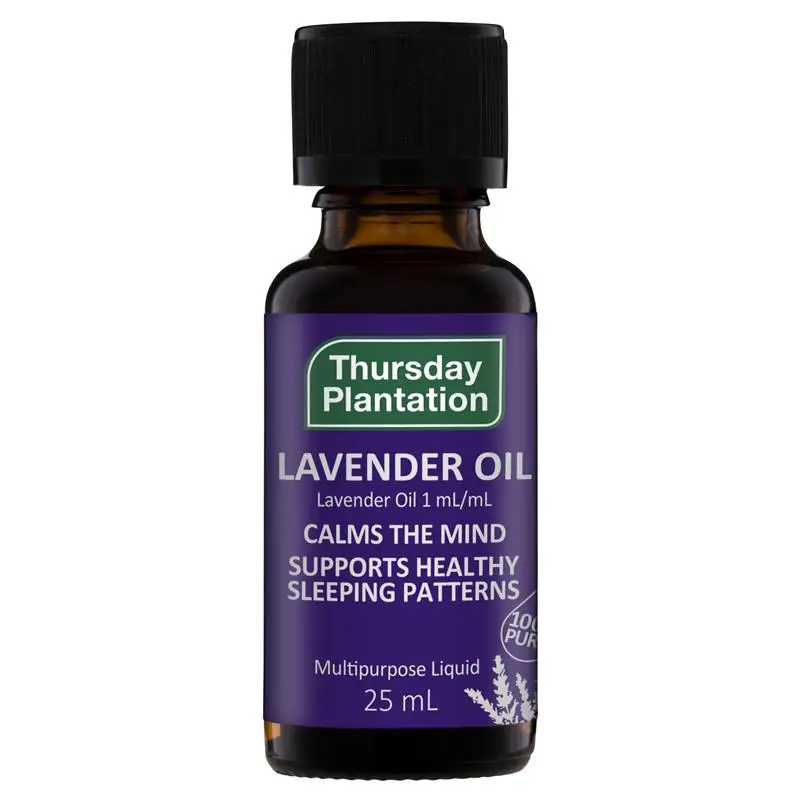 Damask rose ether helps to cope with panic disorders, shock, fear, sadness. The Iranian Red Crescent Medical Journal described a study in which two groups of pregnant women took part. It was the first pregnancy for everyone, and the upcoming birth, which is quite natural, caused anxiety. One group of expectant mothers was offered a 10-minute inhalation and foot bath with rose ether. The second is just a warm foot bath. As a result, it turned out that women after a session of aromatherapy became less anxious. The usual relaxing procedure had no such effect.
Damask rose ether helps to cope with panic disorders, shock, fear, sadness. The Iranian Red Crescent Medical Journal described a study in which two groups of pregnant women took part. It was the first pregnancy for everyone, and the upcoming birth, which is quite natural, caused anxiety. One group of expectant mothers was offered a 10-minute inhalation and foot bath with rose ether. The second is just a warm foot bath. As a result, it turned out that women after a session of aromatherapy became less anxious. The usual relaxing procedure had no such effect.
Vetiver oil
Vetiver essential oil has the ability to pacify, soothe, give a feeling of spiritual comfort. “This is why vetiver is often used in post-traumatic therapy,” says Josh Ax. - The pronounced anti-anxiety effect of the aromatic oil of this plant was discovered in the course of a study, the results of which appeared in the journal Natural Product Research. The experiment, however, was carried out on laboratory animals and the issue requires further study.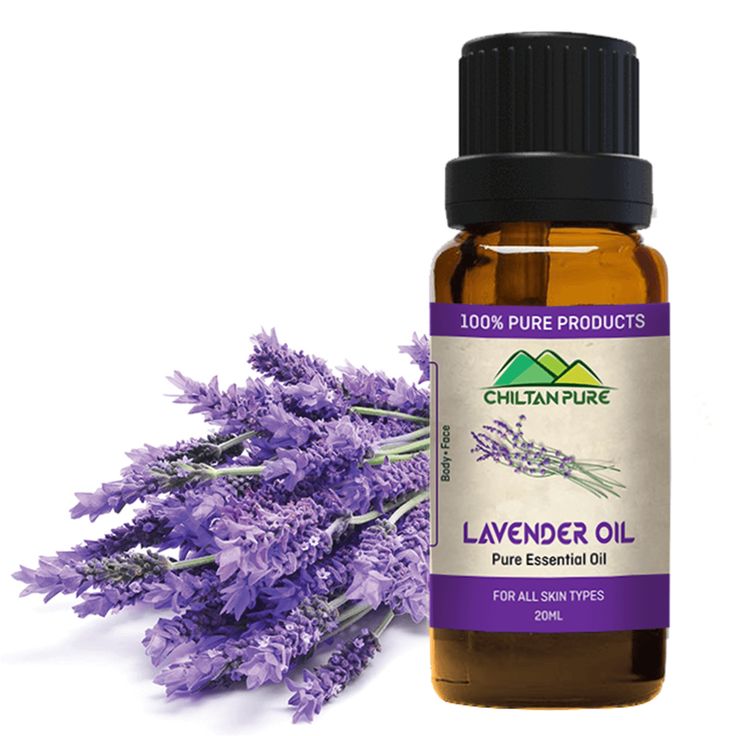
Ylang Ylang Oil
Ylang Ylang essential oil is often used in the treatment of anxiety and depression. This plant has a relaxing effect, relieves nervous tension, helps to cope with phobias, insomnia. Aromatherapy sessions using ylang-ylang oil are also useful for those who have lost the joy of life, who need a boost of energy and optimism. “A study conducted in 2006 by Korean scientists found that using a mixture of ylang ylang, bergamot and lavender aroma oils once a day for a month reduced the adverse effects of stress, lowered cortisol levels, and also lowered blood pressure in those who suffer from hypertension, says Josh Ax. “If you have low blood pressure, you need to be careful with ylang-ylang ester.”
Bergamot oil
Bergamot essential oil perfectly calms the nervous system, relieves emotional stress, therefore it is recommended for everyone who lives in conditions of chronic stress.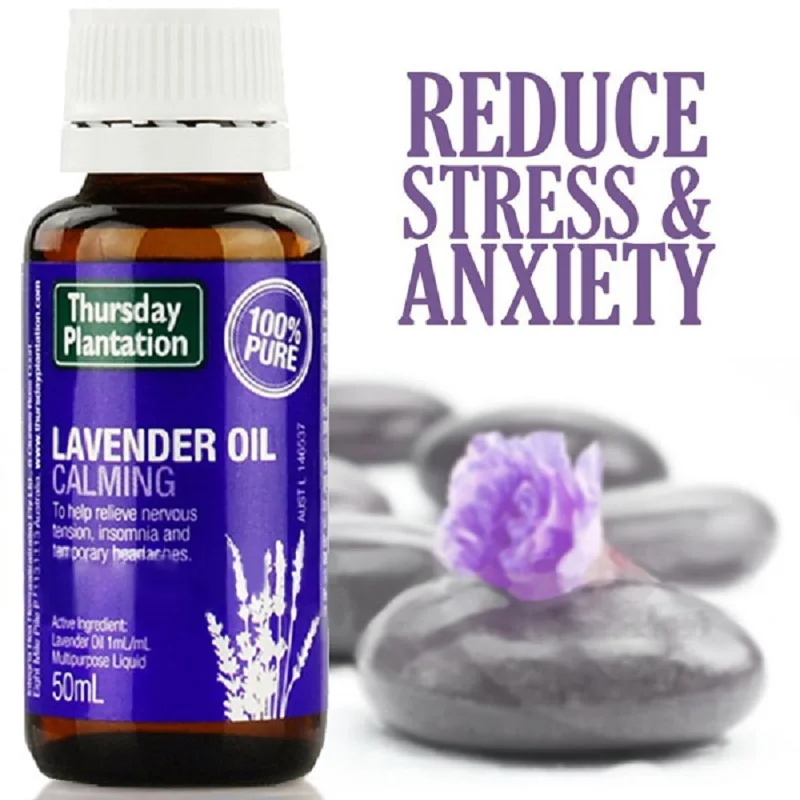 The pronounced relaxing effect makes it a good remedy for insomnia. Experiments on laboratory rats have confirmed the ability of bergamot oil to reduce the level of corticosterone, a hormone responsible for the body's response to stress. In a 2011 study, scientists found that a mixture of bergamot and lavender aromatic oils applied to the skin helped reduce anxiety in depressive disorders. The "experimental" decreased blood pressure and heart rate. When using bergamot essential oil, remember that it makes the skin sensitive to sunlight and can cause burns.
The pronounced relaxing effect makes it a good remedy for insomnia. Experiments on laboratory rats have confirmed the ability of bergamot oil to reduce the level of corticosterone, a hormone responsible for the body's response to stress. In a 2011 study, scientists found that a mixture of bergamot and lavender aromatic oils applied to the skin helped reduce anxiety in depressive disorders. The "experimental" decreased blood pressure and heart rate. When using bergamot essential oil, remember that it makes the skin sensitive to sunlight and can cause burns.
Chamomile oil
Delicate, soothing aroma of chamomile will help you find inner harmony, stability, cope with anxiety, restlessness, and obsessive thoughts. According to scientists at the University of Pennsylvania who studied chamomile essential oil as an antidepressant, it has clinically significant activity in the treatment of depression. The pronounced anti-anxiety effect of aroma oil was also proven in a study published by the National Center for Complementary and Integrative Health. Chamomile essential oil is considered fairly safe, but can sometimes cause allergies, especially in people with ragweed intolerance.
Chamomile essential oil is considered fairly safe, but can sometimes cause allergies, especially in people with ragweed intolerance.
How to use essential oils
The most popular ways to use essential oils to treat anxiety disorders are inhalations and water treatments. "Aromatic oils can also be applied to various areas of the skin, hair, nails, pre-mixed with a small amount of base oil - coconut, almond, jojoba, avocado, olive," says Josh Ax. - Esters can be taken orally by diluting a few drops in a glass of water, tea, or adding honey to a spoon. However, you must be sure that the fragrance oil you are using is of high quality.” There are also biological supplements with essential oils. As a rule, they are produced in the form of capsules.
Essential oils may cause allergic reactions. Before use, do tests: olfactory and skin. In the first case, apply a drop of aroma oil on a piece of clean cloth and inhale the aroma 4-5 times during the day.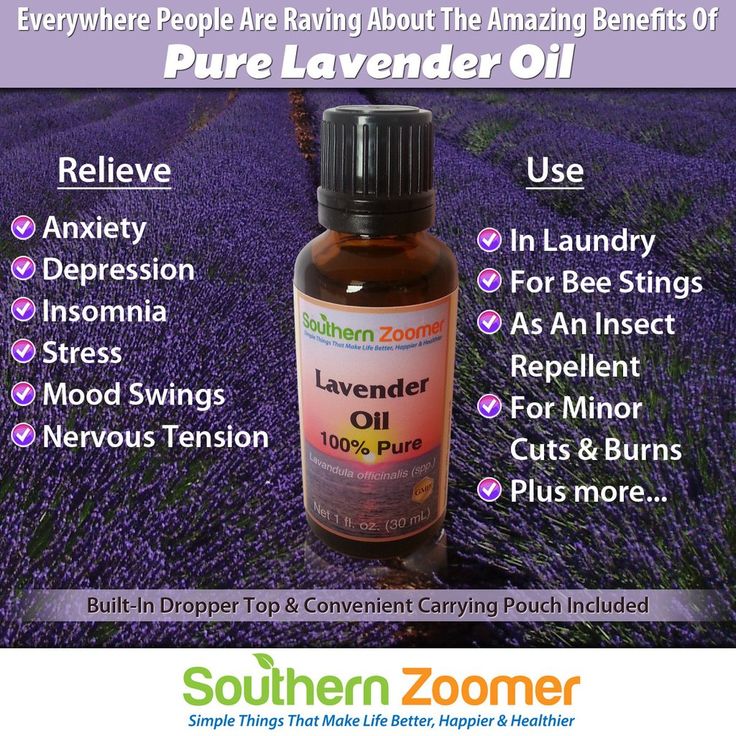 For a skin test, run an ether-soaked cotton ball behind the ear, on the wrist, or in the crook of the elbow. Obvious symptoms of intolerance are difficulty breathing, itching, skin irritation, sweating, dizziness.
For a skin test, run an ether-soaked cotton ball behind the ear, on the wrist, or in the crook of the elbow. Obvious symptoms of intolerance are difficulty breathing, itching, skin irritation, sweating, dizziness.
Essential oils for anxiety and anxiety – 4fresh blog
There are times when the psychological burden increases significantly. Work "marathons", difficult parental responsibilities, caring for a sick loved one, a situation of financial uncertainty ... And the situation with the viral pandemic does not add optimism: in addition to general stress and anxiety, irritation is added, which is growing due to self-isolation.
There are many such moments in the life of each of us. Women are especially sensitive to situations of emotional stress, because by nature their nervous system is more sensitive and more labile. If you do not take additional measures, then after the initial stress reaction (anxiety, irritability, restlessness), mental exhaustion and apathy may occur.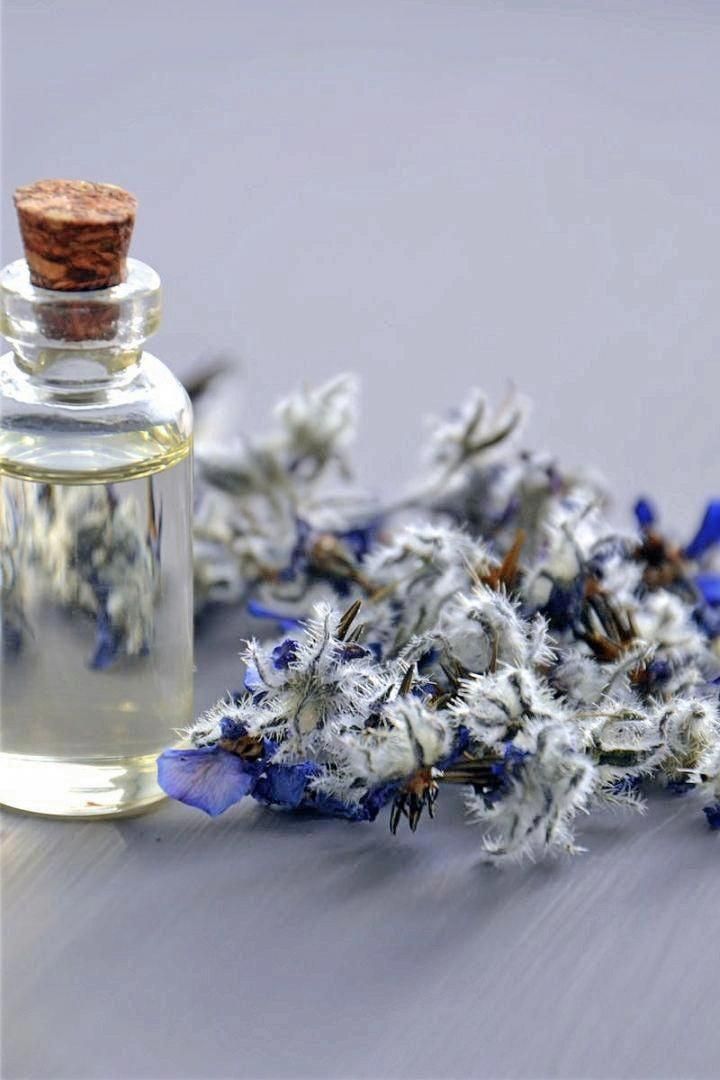
In order to constantly maintain calm and good spirits, without falling into pessimism and not letting circumstances take over, it will be useful to turn to natural aromas.
In this article, we will give 5 aromatherapy essential oils that will help relieve anxiety and anxiety.
How are essential oils related to emotions?
Essential oils, acting on the ancient part of the brain - the limbic system, trigger a whole cascade of biochemical reactions involved in the processes of psychoneuroimmune regulation. Not only the cells of the olfactory system, but also many other cells of the body have receptors for aromatic substances. Under the influence of individual components of essential oils, an increase or decrease in the heart rate, relaxation of the smooth muscles of the lungs (and therefore easier breathing), changes in vascular tone, activation or relaxation of the nervous system can occur. A number of essential oils have a stimulating effect on the nervous system, help to cope with a breakdown and fatigue.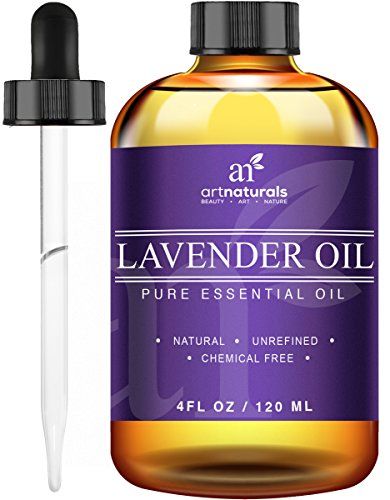
Others, on the contrary, can soothe, eliminate states of anxiety, anxiety, panic, help to carefully assess what is happening. Some components of essential oils (in particular, linalool ) interact with GABA (gamma-aminobutyric acid) receptors, which provides sedative and analgesic effect. By selecting the right essential oils and performing simple home aroma procedures based on them, you can more adequately respond to life's difficulties, make more accurate decisions, get less exhausted and have a better rest.
What essential oils should be paid attention to in a situation of mental overload? Specialists of Primavera, a leading German manufacturer of premium essential oils, based on their vast experience in working with various emotional problems, select essential oils to support the functioning of the nervous system, such as lavender, bergamot, red mandarin, lemon balm, cedar, boswellia .
Recipe 1. With lavender
Lavender essential oil, with its delicate, fresh and "airy" scent, is probably the most famous of the relaxing and soothing oils. It is obtained by steam distillation from the most fragrant lavender bushes grown in the Mediterranean countries. Due to its popularity, lavender oil is often counterfeited, and low-quality samples can often be found on sale. But only the finest organic lavender oil has the full spectrum of benefits.
It is obtained by steam distillation from the most fragrant lavender bushes grown in the Mediterranean countries. Due to its popularity, lavender oil is often counterfeited, and low-quality samples can often be found on sale. But only the finest organic lavender oil has the full spectrum of benefits.
[:product:prim0008:]
The main components of lavender essential oil are monoterpene alcohols and esters (mainly linalool and linaliacetate). Due to them, lavender oil relieves nervous tension, increases psychological stability, helps to fall asleep faster and makes sleep deeper. Lavender is one of the most versatile oils, it can be applied to the skin in its pure form or mixed with fatty oils. It is suitable for any relaxing procedures - massages, baths, local baths or applications. Added to the aroma lamp, it creates an atmosphere of calm, harmonious comfort in the house.
Sheep Counting Aroma Compress
- 1 teaspoon base oil (almond, jojoba or olive)
- 2 drops bio lavender essential oil Primavera
- 2 drops essential oil of bergamot bio Primavera
- 2 drops of organic cedar essential oil Primavera
Mix, moisten a soft cloth, apply to the middle of the chest (thymus region).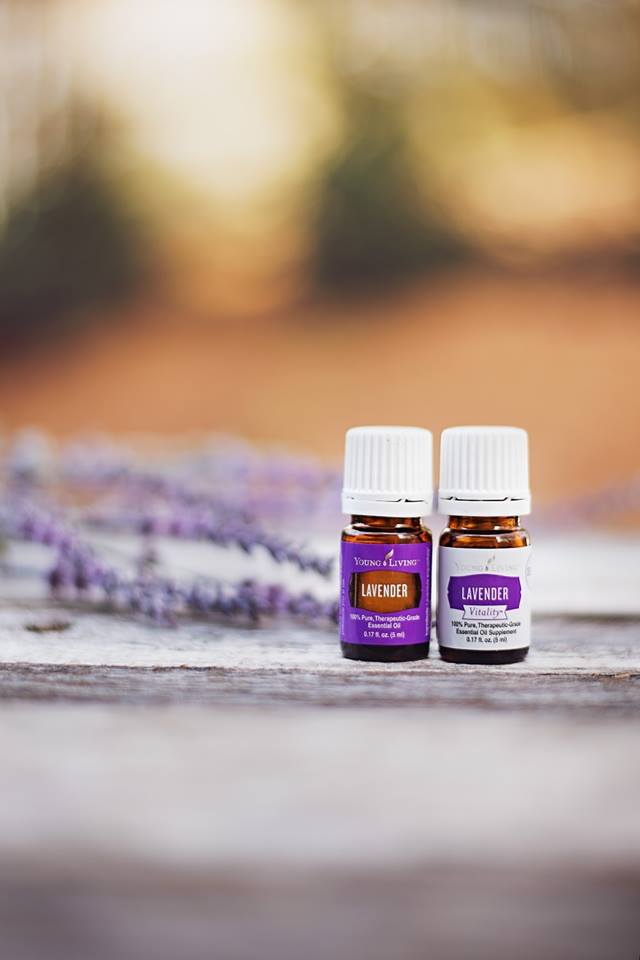 Place in a plastic bag in the morning and use again the next night. Facilitates falling asleep, improves the quality of sleep.
Place in a plastic bag in the morning and use again the next night. Facilitates falling asleep, improves the quality of sleep.
Recipe 2. Bergamot
Like other citrus oils, bergamot oil is obtained by cold pressing the peel of the fruit. It contains typical citrus monoterpenes (primarily limonene), which explains its intense aroma and high volatility. But bergamot oil is distinguished from other citrus fruits by a high content of "flower" components - linalool and linalyl acetate, which are primarily characteristic of lavender. This explains its calming, antidepressant and even slightly hypnotic effect.
Aromapsychologists emphasize that the aroma of bergamot relieves fear, uplifts the mood, and balances the emotional background.
In menopause, it helps relieve the discomfort caused by hot flashes and emotional fluctuations. In the workplace, bergamot is effective for increasing motivation and for getting rid of the fear of speaking, at home - for relieving nervous tension and anxiety, with panic attacks and sleep disturbances.
Almost everyone likes the major aroma of bergamot, this is the perfect way to cope with the blues and cheer up on a cloudy morning. But if you are going to go out into the bright sun, it is better to prefer another essential oil, since bergamot oil interacts with ultraviolet rays, which can cause skin irritation.
[:product:prim0002:]
Soul balm
- 1 tsp. base (fatty) oil
- 2 drops of bergamot essential oil bio Primavera
Mix, apply to a soft cloth, warm in hands, apply to the heart area.
Recipe 3. With red mandarin
The main component of red mandarin essential oil is limonene, which provides its citrus aroma and stimulating effect. In addition, tangerine oil contains methyl anthranilate, which creates a mood of sparkling, carefree joy. Mandarin essential oil is useful for relieving spasms of various nature, it increases vitality, activates digestion.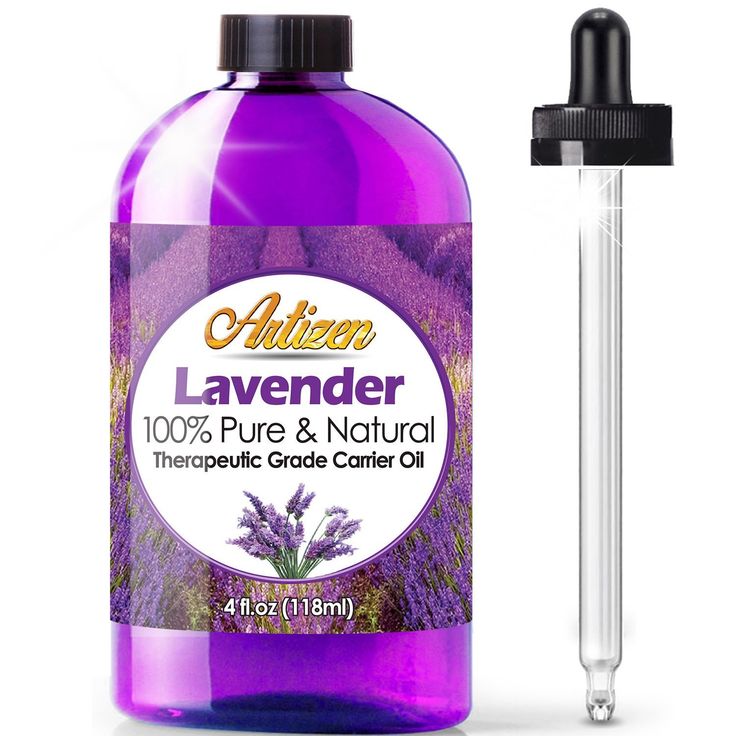 It is considered an excellent fragrance for a nursery, as it improves sleep and appetite, eliminates fears and hyperexcitability, sets the child up for curiosity and cooperation with parents or teachers.
It is considered an excellent fragrance for a nursery, as it improves sleep and appetite, eliminates fears and hyperexcitability, sets the child up for curiosity and cooperation with parents or teachers.
[:product:prim0012:]
In adults, red mandarin essential oil is useful for depressive mood, burnout syndrome, irritability, and during periods of crisis. During illness, it strengthens the immune system and general tone, speeds up the recovery process, makes it easier to visit a doctor and stay in the hospital. Perfect partners for this oil are all coniferous aromas.
Fast Anxiety Relief
- 20 ml base (fat) oil
- 4 drops of essential oil of red mandarin Bio Primavera
- 4 drops bio lavender essential oil Primavera
- 2 drops of Boswellia Primavera essential oil
For general or local massage before a medical examination, with anxiety and panic. Apply, massaging, on both sides of the spine, and gently rub into the earlobes.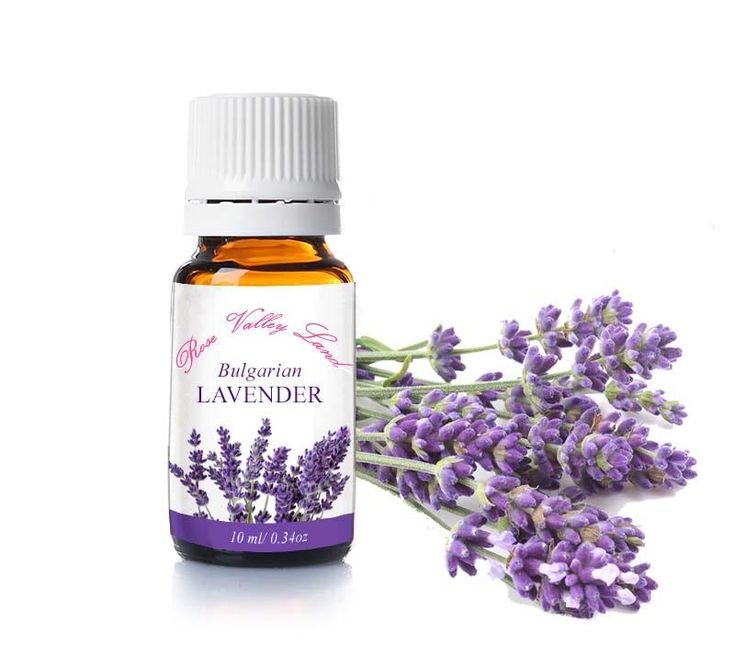
Relieve mental stress
- 50 ml base oil
- 7 drops of organic mint essential oil Primavera
- 7 drops bio lavender essential oil Primavera
Mix, use to massage the head and neck.
Recipe 4. With cedar
The essential oil of Atlantic cedar is markedly different from other coniferous oils. It is obtained not from needles, but from crushed wood. And its aroma is dominated not by fresh coniferous tones (the presence of which is due to light monoterpenes - pinenes), but by thick resinous notes. The main components of cedar essential oil, himachalene and himachalol, are very specific and are not found in other oils. They are responsible for the powerful soothing and strengthening effect of the cedar aroma. No wonder the interiors of temples have been trimmed with cedar wood for a long time - this creates a very special atmosphere of psychological security and spiritual uplift.
The aroma of cedar harmonizes, strengthens, helps to mobilize mental strength, gives self-confidence, it is useful for sleep disorders, with debilitating chronic diseases.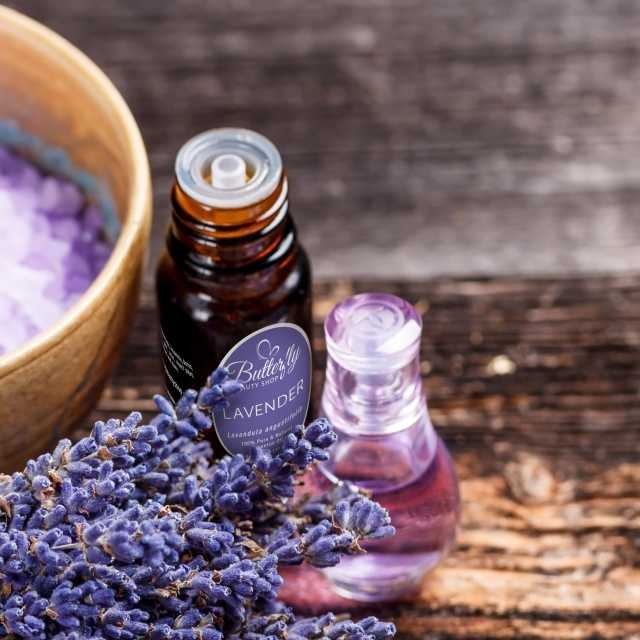 It helps to endure separation and find support in difficult situations, provides a basis for new beginnings, frees from obsessive thoughts. Cedar is considered one of the most masculine fragrances, but it is also suitable for women, especially in those moments when you need to gather yourself internally, show patience and spiritual strength.
It helps to endure separation and find support in difficult situations, provides a basis for new beginnings, frees from obsessive thoughts. Cedar is considered one of the most masculine fragrances, but it is also suitable for women, especially in those moments when you need to gather yourself internally, show patience and spiritual strength.
[:product:prim0007:]
Relax your back
- 20 ml base (fat) oil
- 4 drops essential oil of bergamot bio Primavera
- 3 drops bio lavender essential oil Primavera
- 3 drops of organic cedar essential oil Primavera
Mix, use for a relaxing massage for tense, tired, spasmodic back muscles.
Recipe 5. With boswellia (incense)
Boswellia (frankincense) essential oil is obtained from the resin of a desert shrub. Interestingly, in addition to powerful resinous and smoky shades, its aroma contains light coniferous and citrus nuances, which is explained by the presence of pinenes and limonene. A characteristic component of Boswellia oil is gurkunen. Thousands of years ago, the ancient Egyptians were already familiar with the antibacterial and protective properties of Boswellia, using it in embalming formulations.
A characteristic component of Boswellia oil is gurkunen. Thousands of years ago, the ancient Egyptians were already familiar with the antibacterial and protective properties of Boswellia, using it in embalming formulations.
[:product:prim0003:]
For centuries, boswellia has been used in a variety of religious ceremonies to strengthen the spirit of believers, freeing them from fuss and setting them in a sublime mood. Today, this valuable essential oil is used as an antidepressant and pain reliever, it improves sleep, helps to endure psychological stress and cope with negative emotions.
Soothing massage
- 2 drops bio lavender essential oil Primavera
- 2 drops essential oil of bergamot bio Primavera
- 1 drop Boswellia bio Primavera essential oil
Mix with a little cream (or honey, or starch). Dissolve in 5 liters of water. Use for rubdown.
Nature gives a person everything necessary for life in harmony with the world, and now we all need her support more than ever.
